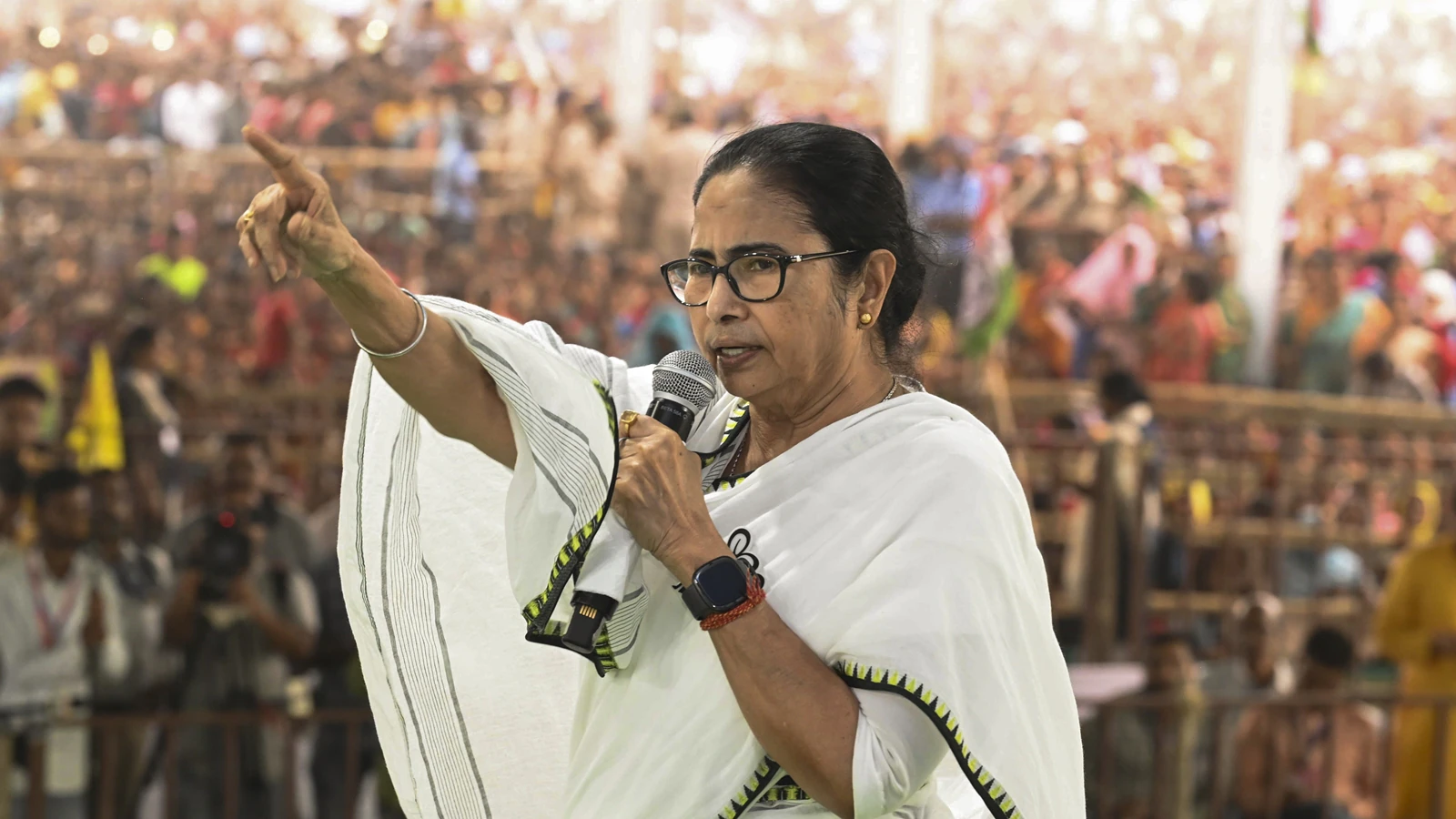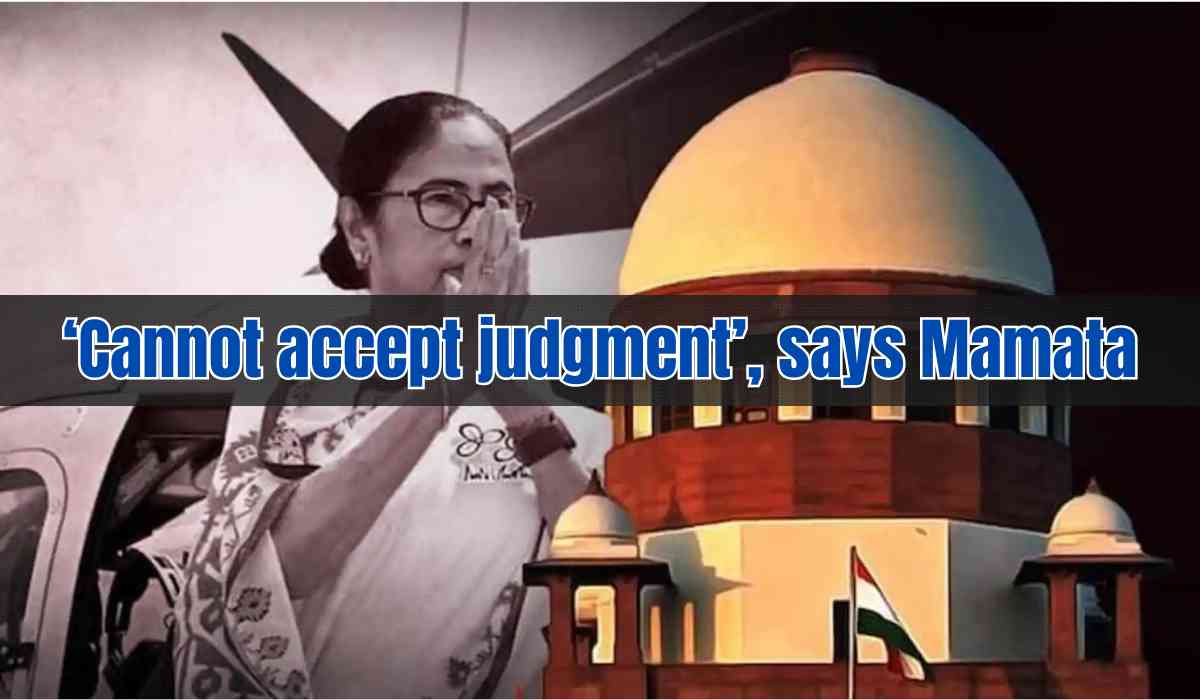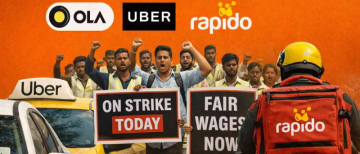In a landmark decision, the Supreme Court of India has upheld the Calcutta High Court's verdict, leading to the dismissal of nearly 26,000 teachers and non-teaching staff in West Bengal. The ruling has triggered a major political storm, with the opposition Bharatiya Janata Party (BJP) and the Communist Party of India (Marxist) [CPI(M)] launching scathing attacks on the Trinamool Congress (TMC)-led state government. Chief Minister Mamata Banerjee has refused to accept the judgment on moral grounds while vowing to comply legally.

Background: The Recruitment Scam and Legal Battle
The controversy dates back to 2016, when the School Service Commission (SSC) conducted recruitments for teachers and non-teaching staff in state-run and state-aided schools in West Bengal. Allegations of corruption and irregularities in the hiring process surfaced, leading to legal action.
Key Developments:
-
April 2024: The Calcutta High Court ruled that the recruitment process was illegal and ordered the termination of 25,753 appointees.
-
May 7, 2024: The Supreme Court granted a temporary stay but allowed the Central Bureau of Investigation (CBI) to continue its probe.
-
April 2025: The Supreme Court upheld the High Court’s decision, ruling that the entire selection process was "vitiated by manipulation and fraud."
The court also ordered that the dismissed employees return their salaries with interest and directed fresh recruitment within 15 days.
Mamata Banerjee's Response: Defiance and Compliance
Reacting to the verdict, Chief Minister Mamata Banerjee expressed her displeasure, calling it unfair and politically motivated.
Key Statements by Mamata Banerjee:
-
"I believe this has been done by the CPI(M) and BJP… We have the highest regard for the judiciary, but… I cannot accept this judgment."
-
"One Chief Justice of India (CJI) stayed the High Court verdict, and another Chief Justice cancelled it. Now you can understand what I want to say."
-
"We will appeal for a review in the Supreme Court. Our legal experts will decide on the basis for the appeal."
-
“As a citizen of this country, I have every right, and I cannot accept this judgment, with due respect to the judges. I am expressing my opinion from a humanitarian perspective.”
Support for the Dismissed Teachers
Banerjee assured affected teachers of government support. She announced a meeting on April 7 to address their concerns, stating,
"We are with you. We may be sent to jail for supporting you, but don't worry; I will welcome that."
Government’s Next Steps
Banerjee announced that her government would:
-
File a review petition in the Supreme Court.
-
Provide support to dismissed teachers.
-
Conduct a fresh selection process through the SSC.

Supreme Court’s Justification for the Ruling
The Supreme Court bench, led by Chief Justice of India Sanjiv Khanna and Justice Sanjay Kumar, ruled that the selection process was fraudulent and lacked legitimacy. The bench stated:
-
"The entire selection process is vitiated by manipulation and fraud."
-
"Appointments were the result of cheating, making them fraudulent."
-
"Even those appointed through fair means have suffered due to this scam."
The court ruled that only eligible candidates could reapply for the fresh recruitment process.
Opposition’s Attack on the TMC Government
Following the verdict, opposition parties intensified their criticism of the TMC government, demanding accountability.
BJP’s Reaction
The BJP has strongly condemned the TMC government, holding it responsible for the recruitment scam. BJP state president Sukanta Majumder took to social media, stating:
The sole responsibility for this massive corruption in teacher recruitment lies with the failed Chief Minister of the state, Mamata Banerjee. The Supreme Court’s verdict has made it clear how, under Mamata Banerjee’s rule, the merit of educated unemployed youth in West Bengal was sold in exchange for money!
He further demanded Banerjee’s resignation, accusing her government of selling job opportunities in exchange for bribes.
CPI(M)’s Criticism
CPI(M) leaders also slammed the state government, alleging deliberate inaction.
-
Sujan Chakraborty (State Committee Member): "The state government had one year to separate genuine candidates from those who paid bribes, but it failed."
-
Md Selim (State Secretary): "Mamata Banerjee and the TMC have inherited corruption from the RSS, which first conducted such recruitment scams in Madhya Pradesh (Vyapam Scam)."
-
Bikash Bhattacharya (Advocate & CPI(M) Leader): "The Supreme Court has allowed eligible candidates to reapply, but can we trust the TMC government to conduct a fair recruitment process?"
Mamata Banerjee’s Allegations of Political Conspiracy
Banerjee did not hold back in her criticism, alleging that the BJP and CPI(M) conspired to undermine West Bengal’s education system.
Key Points from Banerjee’s Statement:
-
She questioned why all 25,000 employees were dismissed when only some were allegedly involved in corruption.
-
The first judge who gave the dismissal order is now a BJP MP.
-
She compared the case to the Vyapam scam in Madhya Pradesh, where multiple people lost their lives under suspicious circumstances.
-
She pointed out the double standards in handling corruption, referencing cash recoveries from a judge’s residence.
“If money is recovered from a sitting judge’s home, he is only transferred. Then why were these candidates not transferred?”
She also raised concerns about the impact on students, highlighting that:
-
Over 11,000 dismissed teachers taught in Classes 9 and 10.
-
More than 5,500 taught in Classes 11 and 12.
-
Several dismissed teachers were evaluating board exam answer sheets.
“Class 9-12 are very important classes, the gateway to higher education. Do BJP and CPI(M) want the education system to collapse?” she asked.
She compared the situation to the Vyapam scam in Madhya Pradesh, where multiple people allegedly died under suspicious circumstances.
What’s Next? The Road Ahead
Despite her criticism of the verdict, Banerjee has stated that the government will implement the Supreme Court’s ruling. The SSC, an autonomous body, has been instructed to conduct a fresh recruitment process within three months.
The Supreme Court’s ruling marks a critical moment in West Bengal’s education and political landscape. While the verdict seeks to uphold fairness in recruitment, its implementation raises concerns about the impact on education and livelihoods. As legal battles continue and political tensions rise, the fate of thousands of teachers and the credibility of the state’s recruitment process remain in question.
With inputs from agencies
Image Source: Multiple agencies
© Copyright 2025. All Rights Reserved Powered by Vygr Media.





















